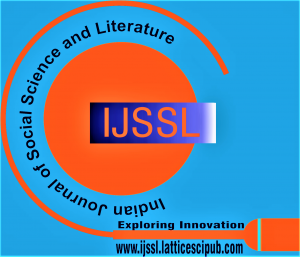![]()
The Contribution of Ahilyabai Holkar in the Domain of Education and Social Welfare
Mahima Soni
Mahima Soni, Department of Sociology, IGNOU, Sehore (Madhya Pradesh), India.
Manuscript received on 03 May 2025 | First Revised Manuscript received on 12 May 2025 | Second Revised Manuscript received on 18 August 2025 | Manuscript Accepted on 15 September 2025 | Manuscript published on 30 September 2025 | PP: 14-17 | Volume-5 Issue-1, September 2025 | Retrieval Number: 100.1/ijssl.D118104040625 | DOI: 10.54105/ijssl.D118105010925
Open Access | Ethics and Policies | Cite | Zenodo | OJS | Indexing and Abstracting
© The Authors. Published by Lattice Science Publication (LSP). This is an open-access article under the CC-BY-NC-ND license (http://creativecommons.org/licenses/by-nc-nd/4.0/)
Abstract: This research paper examines the contribution of Ahilyabai Holkar, the 18th-century queen of Malwa, to the fields of education and social welfare. The study aims to understand how her reforms challenged patriarchal norms embedded in Dharmashastra texts, such as the Mitakshara and Dayabhaga, which traditionally limited women’s roles in society. Using a qualitative research methodology, the study employs a comparative analysis and a literature review of historical texts, government records, and scholarly sources. This study uses a qualitative research approach to gain a nuanced understanding of the available literary, historical, and archival sources. This method helps in interpreting the prevalent social norms and cultural features of her kingdom. The comparative method helps distinguish her administrative policies and governance from those of other rulers of that era. It explores how Ahilyabai Holkar’s governance prioritized inclusive education and public welfare (Mulye, 2024). She established numerous Pathshalas (schools) for both boys and girls, extended support to widows, and implemented development projects in “healthcare, water management, and infrastructure”. The research reveals that Ahilyabai’s leadership challenged the prevailing gender ideology of her time. Her actions reflected a vision of ethical governance that combined administrative strength with moral responsibility. She demonstrated that a woman in power could lead effectively while promoting social justice and empowerment (Chandel, 2023). The significance of this lies in its emphasis on Ahilyabai Holkar’s role as a reformer whose contributions are often overlooked in mainstream historical narratives. Her legacy offers valuable insights into women’s leadership and the historical roots of gender-sensitive governance. By revisiting her initiatives, this paper contributes to ongoing discussions on social reform, education, and gender equality in India.
Keywords: Ahilyabai Holkar, Social Reforms, Women’s Rights, Education, 18th-Century India.
Scope of the Article: History
